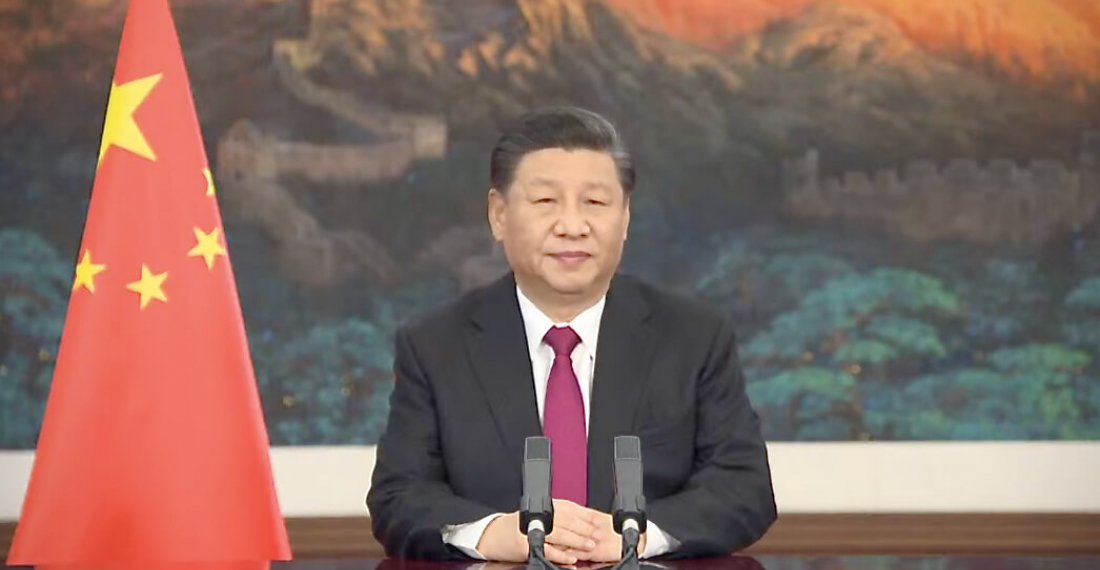- Armenia-Azerbaijan Strategic Expert Platform: Members emphasise the importance of the present moment for the South Caucasus and call for the momentum to be used for the long-term peace and prosperity of the region
- Thursday Interview: Dr. Anar Valiyev
- Food insecurity in Somalia has nearly doubled in the past year
- Türkiye evaluating potential measures in case of a US-Iran conflict
- European Parliament reaffirms support for Ukraine and EU Path
- EU moves ahead with Ukraine loan preparations despite Hungarian block
President Xi warns against 'new Cold War' amid China's fears world democracies are ganging up against it

Speaking yesterday (25 January) at the virtual World Economic Forum, Chinese President Xi Jinping spoke out in favour of multilateralism whilst warning against meddling in countries' internal affairs.
The Chinese leader forewarned against the formation of “small cliques” in the international order, which he argued will only lead to a dead end. In his first public statement since the inauguration of US President Joe Biden, President Xi called for international cooperation, the removal of the “outdated” zero-sum mentality of the Cold War, and the adherence “to mutual respect and accommodation”.
In four points, the Chinese leader laid out how he believes the world can move away from the current problems that it is facing, exacerbated by the coronavirus pandemic:
- Firstly, he advocated for “openness and inclusiveness instead of closedness and exclusion”. He spoke out in favour multilateralism and the “common values of humanity, namely peace, development, equity, justice, democracy, and freedom”.
- Secondly, he called for support for international law and the bolstering of multilateralist institutions, which he stated, “provide the platform for putting multilateralism into action, and which are the basic architecture underpinning multilateralism”.
- Thirdly, he suggested that countries should not meddle in each other’s “internal affairs”, and that they should respect and accommodate differences. He warned against “antagonism and confrontation”, which “eventually hurt all countries’ interests and undermine everyone’s well-being”.
- Finally, he called for a willingness to accept that the world is changing, calling again for support for multilateral institutions, namely, the World Health Organization (WHO) and World Trade Organization (WTO). He also underlined the importance of delivering on the Paris Agreement on Climate Change and the promotion of green development.
Xi’s statement comes just a month after an agreement in principle on the EU-China Comprehensive Agreement on Investment, which aims to increase bilateral investment – giving European companies access and legal safeguards for investments in the Chinese market. Individuals within President Biden’s new administration have made it clear that they do not support the deal, which is being seen by some as an attempt by the EU to depart from its reliance on its transatlantic partner. The agreement has also been heavily criticised in Europe and the West for its lack of provisions regarding human rights and labour reforms, and is thought to be unlikely to pass EU parliamentary scrutiny as it stands.
The Chinese leader’s comments appear to have a least two motives: as a response to President Biden’s assertion that an alliance of democracies needs to work together to combat China’s rise; and as a thinly veiled defence of China’s heavily criticised human rights abuses – which Xi characterises as “internal affairs” – and sanctions being considered in the West in response to them.
A 14-country survey published by the Pew Research Center in October last year, showed that unfavourable opinions of China are at an all-time high in many Western countries, with a median of 76% of European respondents reporting that they have no trust in President Xi to ‘do the right thing regarding world affairs’.
Source: commonspace.eu with agencies
Photo: A screen grab from President Xi's virtual address








